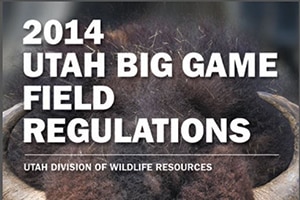The state of Utah utilizes a program that benefits hunters, private land owners, the state’s economy and its wildlife. Cooperative Wildlife Management Units (CWMU’s) are hunt areas consisting of mostly private lands that have been authorized for the specific purpose of managing big game animals. This Utah government program has opened more than two million acres of private land to the public. In order to qualify for the program, landowners must have a minimum of 5,000 contiguous acres to manage deer, pronghorn or turkey and a minimum of 10,000 contiguous acres for elk or moose. Private landowners may join together to form a single CWMU. This program benefits landowners allowing them to better manage their private range and forest lands as wildlife habitat, improve herd genetics, and benefits hunters allowing them more opportunities to take an animal with fewer hunters to compete with.
The CWMU program is an effort by the Utah Wildlife Board and the Division of Wildlife Resources (DWR) to recognize the contribution made by private landowners in providing big game habitat on their private lands. In return, a number of public hunters that are drawn through the Utah big game drawing are allowed to hunt specific big game on these CWMU’s. Currently, there are 115 hunting units throughout Utah.
Once the CWMU permit has been established, the land owner will receive a specified number of tags dependent upon the characteristics of their property as determined by the DWR. A small percentage of tags is provided to the public through a draw system, and the remainder are provided to the land owner. Typically the land owner will sell the majority of the tags to a hunting outfitter who will lease the property for running guided hunting trips as well as help manage the herd to improve genetics.
For the first time, Indian Head Ranch will be an independent CWMU in 2015.

